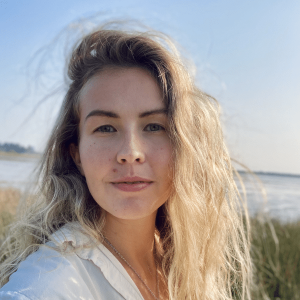Recently we had the chance to chat with Katie Storr aka Mermaid Katie to ask her a few questions about scuba diving and all things ocean!
Katie Storr is a Bahamian underwater & travel photographer specializing in scuba diving instruction as well as media and content curator for ‘This Is Bahamas’. PADI Master Scuba Diver Trainer and AYI Chief Yacht Stewardess Katie Storr was introduced to the ocean at a very young age. She fell in love with the ocean, marine life, and scuba diving from the first time her eyes ventured below the surface. Katie is one of the few women pro Underwater Photographer Instructors in The Bahamas and loves capturing memories and sharing them with others to spread her love and devotion for ocean education.
Katie is the manager of the ‘This Is Bahamas’ travel page on Instagram, providing visitors with valuable information on Marine Protected Areas, marinas, navigation, fishing regulations, and scuba diving treks. She is also a Reef Rescue Network Instructor, having assisted with maintaining coral nurseries built around 11 islands in The Bahamas and trains students on the importance of coral reefs and marine ecosystems.
She is a loving shark advocate and Shark Awareness Instructor, with an ambassadorship to the Shark4Kids Education and Outreach Program. Katie is also the owner of The Mersquad Yachting, CoFounder of The Ocean of Colour & Melanin Yachties and focuses primarily on bringing ocean awareness and education to people of colour.

What made you want to become a PADI Reef Rescue Diver Instructor?
“At first it was because I wanted to assist with maintaining the nurseries. However, after becoming an Instructor it became a major focus for me with educating those around me, particularly Bahamians, on the importance of coral reefs. I became mesmerized and would often find myself watching coral polyps feed on dives and pointing out diseases and different species. It became quite a fascination and now I want to continue my education and learn how to do reef surveys such as Atlantic Gulf Rapid Reef Assessments”
What is your favorite part of teaching the PADI Reef Rescue Diver Specialty Course?
“When students realize corals are not rocks but are alive, most people don’t know or understand that corals are small animals that play a big part in our underwater ecosystems. Their existence is so vital to our reefs, they create homes for so many animals and their skeletons make up the reef’s foundation. After realizing this, students have an entirely different understanding of corals, they start to see things clearer and with purpose”
Which is your favorite Reef Rescue Network coral nursery to visit and why?
“San Salvador at Seafari Club Med, it means a lot to me because it’s in my hometown. It’s a great dive site as well, filled with vibrant corals and teeming with life, and just a few feet away from the wall drop off. There’s a chance to see sharks cruising along the wall, sea turtles and stingrays in the sand”
What is your most memorable experience you have had while working within a Reef Rescue Network coral nursery?
“Relocating and outplanting corals at Sand Chute and Sims Point in Nassau was an interesting experience because I got to film the entire event. There were about twenty divers for a few days, and we all had different tasks and worked in groups. However, because I was filming, I got to tag along with each group, it was extremely fun to get to know everyone and it felt great to see our coral reefs be revived”

Why do you recommend the PADI Reef Rescue Diver Specialty to certified divers?
“Not only will you learn about corals and their importance, but you will join a network of divers who welcome you with open arms. We are a team, and we are all passionate about the ocean. Scuba diving to save the ocean makes you a stronger diver mentally and physically and the skills needed to perform such tasks as a Reef Rescue Diver will assist with your buoyancy. I believe the certification is very rewarding for students and provides further motivation to protect our ocean”



What is your favorite coral and why?
“Staghorn coral, Acropora cervicornis, which is one of the most important corals in the Caribbean as it forms dense thickets which provide an important habitat to so many animals. When grown in a suspended nursery it takes about half a year to grow to a size that can be out planted onto the reef. According to the Perry Institute for Marine Science colonies grown in nurseries may be the best hope for this species to recover”
Why is coral restoration in The Bahamas important to you?
“Over the years corals reefs have been depleting and many coral species are becoming critically endangered specifically the reef building corals like staghorn and elkhorn. The Bahamas is dependent upon healthy coral reefs for jobs, food and our tourism industry. Our coral reefs protect our islands and are a barrier to wave impact, hurricanes, and strong winds. Coral restoration will help to protect and restore their natural value while producing vital research and scientific information for the future”
Why would you recommend the Bahamas as a dive destination?
“The Bahamas has a unique way of capturing one’s heart, it’s a place that once you have visited you won’t forget, for a lifetime. There is so much to explore underwater, The Tongue of The Atlantic Ocean, amazing topography, historical wrecks, vibrant reef systems and my favorite – sharks! The Bahamas also has the 3rd largest barrier reef in the world and is also known as the Blue Hole capital of the world”
For more information about Katie Storr visit her Website https://www.katiestorrphoto.com and follow her on Instagram

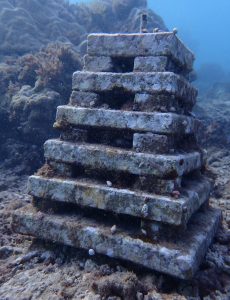
Unveiling Coral Reef Biodiversity: Insights from ARMS Monitoring Structures
An ARM teeming with new coral recruits and a diversity of marine life, highlighting reef recovery and biodiversity Understanding Coral Reef Biodiversity Most new PhDs

7 Essential Insights from COP16: Tackling Coral Reef Conservation Challenges Amid Climate Change
United #ForCoral: Experts, advocates, and leaders from across the globe join forces at COP16 for the #ForCoral conference, hosted by the International Coral Reef Initiative.
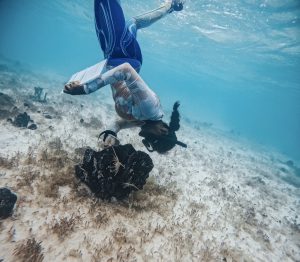
Fieldwork Wrap-Up: Strengthening MPA Management in The Bahamas
Marine protected areas (MPAs) are critical tools in the conservation of marine species and habitats, safeguarding reefs, seagrasses, and mangroves that provide vital ecosystem services
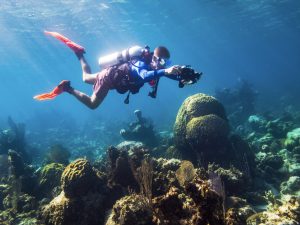
Coral Reef Monitoring with Photogrammetry: A New Era in Reef Health Assessment
Coral reefs are some of the most biodiverse ecosystems on the planet, providing crucial habitat for marine life and protecting coastal regions from erosion. Yet,
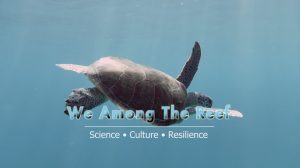
Watch “We Among the Reef:” A Documentary on the Abaco Barrier Reef
The Perry Institute for Marine Science invites you to watch “We Among the Reef,” a compelling documentary that illuminates the significance of the Abaco Barrier

Guardians of the Deep: With Training from PIMS, Key Government Staff Become PADI Certified Divers
Akehia Thompson (DMR), Quetta Gibson (DMR), and Gilles Deal (DEPP) share a moment of camaraderie in their scuba gear, embarking on their training journey with


